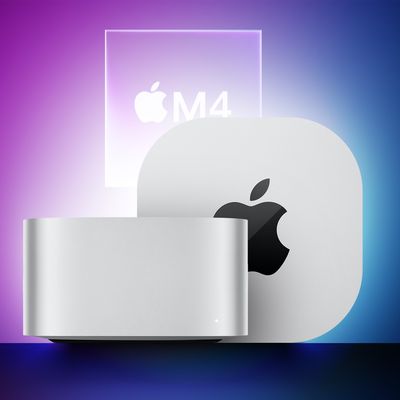Apple's Find My Is 'Super Creepy Surveillance Tech' That Shouldn't Exist, Says Epic Games CEO Tim Sweeney
Epic Games CEO Tim Sweeney today commented on Apple's Find My service, referring to it as "super creepy surveillance tech" that "shouldn't exist."

Sweeney went on to explain that several years ago, "a kid" stole a Mac laptop out of his car. Years later, Sweeney was checking Find My, and as the Mac was still connected to his Apple ID account, it showed him the location where the thief lived.
Sweeney's take is curious, because providing the location of a lost or stolen device is exactly what the Find My service is meant to do. Apple devices remain tied to a user's account if not removed, a feature that is meant to thwart theft.
After confusion from his Twitter followers over his comments, Sweeney said that the location of a device in someone's possession can't be tracked without tracking the person, and "people have a right to privacy." He claims that detection and recovery of a lost or stolen device should be "mediated by due process of law" and not exposed to the device owner "in vigilante fashion."
When Sweeney saw how Find My worked, he said he turned off the feature on all of his devices.
While Apple's AirTag item trackers have been criticized for their use by stalkers, the Find My service has not been the target of similar complaints. Find My and Activation Lock have been important theft deterrents, cutting down on iPhone theft. Apple recently expanded Activation Lock to include iPhone components to prevent them from being disassembled for parts.
Popular Stories
Leaker Sonny Dickson is back today with a new dummy unit image showing all four iPhone 16 Pro color variants, including the rose gold or "bronze" unit that replaces Blue Titanium in the existing iPhone 15 Pro models. The iPhone 16 Pro models are expected to come in black, white or silver, gray or "Natural Titanium," and a rose or rose gold color replacing Blue Titanium, according to Apple...
Multiple rumors have suggested that the iPhone 16 models are going to have an all-new button that's designed to make it easier to capture photos when the devices are held in landscape mode. Apple calls the button the Capture Button internally, and it is going to be one of the most advanced buttons that's been introduced to date with support for multiple gestures and the ability to respond to ...
Apple typically releases its new iPhone series in the fall, and a possible September 10 announcement date has been floated this year, which means we are just one month away from the launch of the iPhone 16. Like the iPhone 15 series, this year's lineup is expected to stick with four models – iPhone 16, iPhone 16 Plus, iPhone 16 Pro, and iPhone 16 Pro Max – although there are plenty of design...
Apple's iPhone 16 series is expected to debut in September 2024. This release follows Apple's trend of introducing new iPhone models annually in the fall. While the exact date has yet to be officially confirmed, the day of Tuesday, September 10 has been rumored as a possible announcement date, and September has traditionally been the month when Apple unveils its latest smartphone innovations. ...
Apple is moving forward with its project to develop a tabletop robotic device, according to Bloomberg's Mark Gurman. Subscribe to the MacRumors YouTube channel for more videos. The device would feature a large iPad-like display mounted on a "thin robotic arm" that would allow the display to tilt and up and down and rotate a full 360º, and it would serve as a "smart home command center," a...
It's almost September, but Apple still has multiple new product launches planned for 2024. New iPhone 16 models and Apple Watches are coming in September, and we're also going to get at least three Mac updates with M4 chips this year, according to rumors. Here's what's on the horizon. MacBook Pro Apple plans to refresh both the 14-inch and 16-inch MacBook Pro models, adding M4 chips. The ...
T-Mobile was fined $60 million by the Committee on Foreign Investment in the US (CFIUS) for negligence surrounding data breaches, reports Reuters. CFIUS penalized T-Mobile for failing to prevent or disclose unauthorized access to sensitive customer data. When T-Mobile merged with Sprint, it signed a national security agreement with CFIUS, which is what led to the fine earlier this year....






















